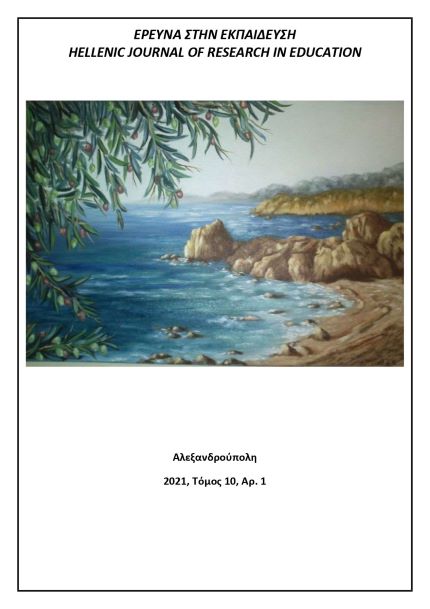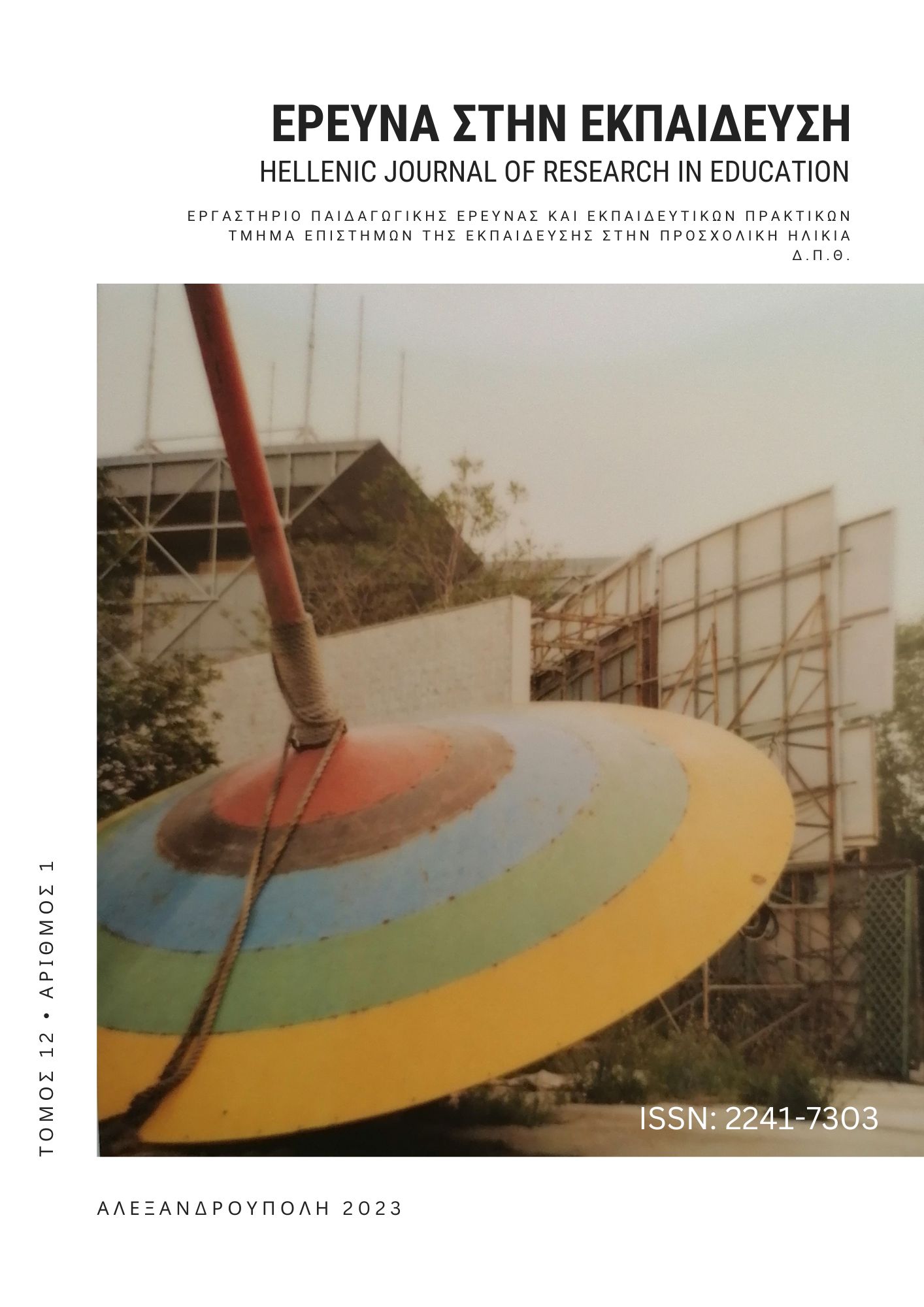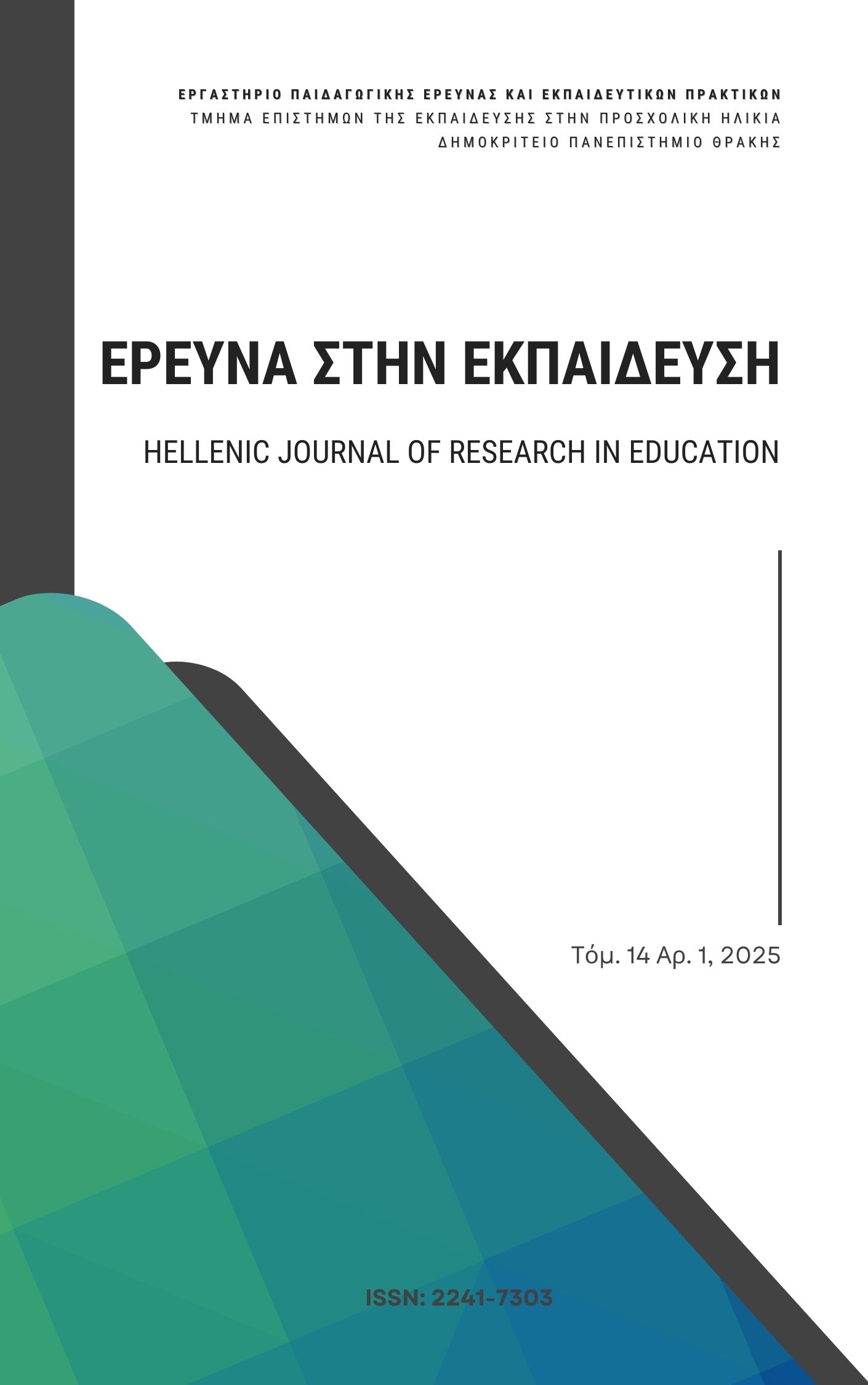H σχέση με τον/την μέντορα και η αυτο-αποτελεσματικότητα των φοιτητών/φοιτητριών του Τμήματος Θεολογίας Αθήνας στην πρακτική άσκηση στο σχολείο

Περίληψη
Στο άρθρο διερευνώνται οι αντιλήψεις Υποψήφιων Εκπαιδευτικών (ΥΕ), φοιτητών/τριών του Τμ. Θεολογίας ΕΚΠΑ, για τους παράγοντες που επηρεάζουν την αυτο-αποτελεσματικότητά τους στη Πρακτική Άσκηση (ΠΑ) στο σχολείο, στο πλαίσιο της απόκτησης της Παιδαγωγικής και Διδακτικής Επάρκειας. Συμμετείχαν 83 ΥΕ, τη χρονιά 2019-20. Μελετήθηκαν ξεχωριστά τέσσερεις διαστάσεις της μεντορικής καθοδήγησης και συγκεκριμένα: α) η ποιότητα σχέσης Μέντορα και ΥΕ, β) η μεντορική υποστήριξη, γ) η διάρκεια και ο χαρακτήρας της ανατροφοδότησης, δ) η αυτονομία των ΥΕ στην επιλογή και δοκιμασία διδακτικών δραστηριοτήτων, σε συσχέτιση με τις αντιλήψεις των ΥΕ για την αποτελεσματικότητά τους στη διδασκαλία (διδακτική αυτο-αποτελεσματικότητα). Από την ανάλυση δεδομένων προκύπτει ότι η καλή σχέση και η υποστήριξη που δέχονται οι ΥΕ από τους/τις Μέντορες σχετίζεται σε ένα βαθμό θετικά με την αυτο-αποτελεσματικότητά τους στη διδασκαλία. Επίσης, όταν η ανατροφοδότηση λειτουργεί θετικά σε πρακτικό εκπαιδευτικό επίπεδο για τους/τις ΥΕ, αυτό σχετίζεται με την αυτο-αποτελεσματικότητά τους στη διδασκαλία, κάτι που δεν συμβαίνει αντίστοιχα με τη διάρκειά της. Τέλος, όσο μειώνεται η συνεισφορά των Μεντόρων Εκπαιδευτικών (ΜΕ) στην επιλογή και την εφαρμογή των διδακτικών δραστηριοτήτων των ΥΕ, τόσο περισσότερο οι ΥΕ αισθάνονται μεγαλύτερη αυτο-αποτελεσματικότητα στη διδασκαλία. Η έρευνα αναδεικνύει σημαντικά κριτήρια για τον μελλοντικό σχεδιασμό προγραμμάτων ΠΑ φοιτητών/τριών ή εκπαίδευσης Μεντόρων.
Λεπτομέρειες άρθρου
- Πώς να δημιουργήσετε Αναφορές
-
Κουκουνάρας Λιάγκης Μ., Παπαϊωάννου Μ., & Αποστολάκη Ε.-Ά. (2021). H σχέση με τον/την μέντορα και η αυτο-αποτελεσματικότητα των φοιτητών/φοιτητριών του Τμήματος Θεολογίας Αθήνας στην πρακτική άσκηση στο σχολείο. Έρευνα στην Εκπαίδευση, 10(1), 229–246. https://doi.org/10.12681/hjre.27824
- Τεύχος
- Τόμ. 10 Αρ. 1 (2021)
- Ενότητα
- Άρθρα

Αυτή η εργασία είναι αδειοδοτημένη υπό το CC Αναφορά Δημιουργού – Μη Εμπορική Χρήση – Παρόμοια Διανομή 4.0.
Τα πνευματικά δικαιώματα των άρθρων του περιοδικού ανήκουν στους συγγραφείς. Τα άρθρα διατίθενται με άδειες Creative Commons CC-BC-SA 4.0




